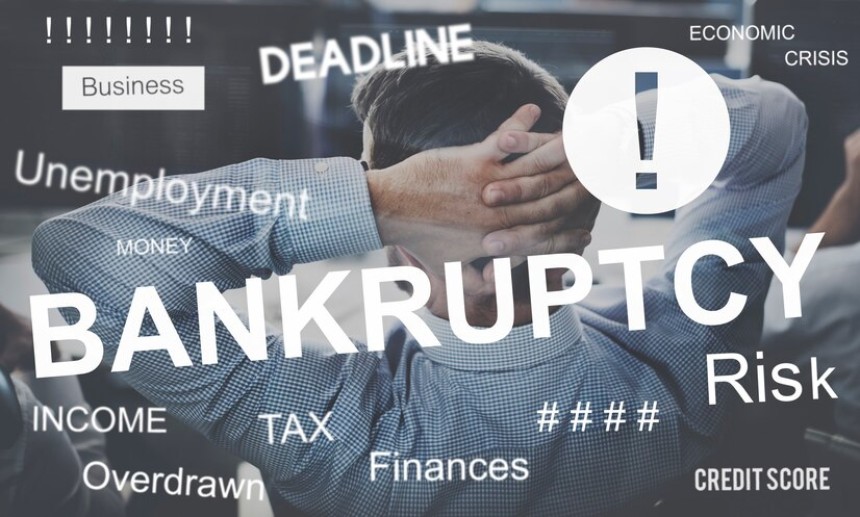
10 Ways To Improve A 500 Credit Score
A credit score of 500 is considered poor. But, there are things you can do to improve your credit score. See 10 ways to to increase your credit score higher than 500.
Click Here To Join Our Mailing List For Credit & Money Tips!
If your credit score is sitting at 500, don’t panic you're not alone, and you're certainly not stuck. While a score of 500 falls into the poor credit range (according to the FICO scoring model), the good news is that there are many ways to start improving it, often without needing to make drastic changes to your life.
Whether you're recovering from past financial missteps or just starting to build credit, the road to a better score is absolutely achievable.
1. Know Where You Stand (Check Your Credit Report)
The first step in fixing your credit is knowing what you're dealing with. You’re entitled to one free credit report each year from the three major credit bureaus Experian, Equifax, and TransUnion through AnnualCreditReport.com. Check for:
- Errors (like accounts that aren’t yours)
- Old debts that should have fallen off
- Incorrect payment statuses
Even one inaccurate negative item can drag your score down, so it’s worth reviewing carefully.
👉 Pro Tip: If you find any errors, dispute them online. The credit bureau is required to investigate and remove inaccurate data within 30 days.
2. Pay Bills on Time, Every Time
This might sound basic, but it’s huge. Your payment history makes up about 35% of your FICO score. That means late payments, even by a few days can really hurt you.
If remembering due dates is tough, try setting reminders or automating payments. Even if you can only make the minimum payment, paying on time shows lenders you’re reliable.
✅ Consistency over time = trust from lenders.
3. Reduce Your Credit Utilization
Your credit utilization ratio is the amount of credit you’re using versus how much you have available. Experts recommend keeping it under 30%, but under 10% is ideal if you're trying to boost your score.
For example, if your total credit limit across all cards is $3,000, try to keep your balances below $900 (or even better, below $300).
How to reduce utilization:
- Make extra payments mid-month
- Spread balances over multiple cards
- Request a credit limit increase (but only if your account is in good standing)
4. Pay Down Outstanding Debt
Credit cards, personal loans, old collections, they all count. Start chipping away at those balances with a structured plan.
Two popular strategies:
- Snowball Method: Pay off the smallest balances first for quick wins.
- Avalanche Method: Pay off the highest-interest debts first to save more money over time.
Whichever approach you take, reducing your total debt will improve your score and your financial well-being.
5. Don’t Close Old Credit Cards (Unless You Have To)
One of the lesser-known factors in your credit score is credit age. How long your accounts have been open? Closing an old account can shorten your credit history and reduce your total available credit, which might raise your utilization ratio.
Unless there’s a good reason (like a high annual fee or inactivity fees), keep older cards open even if you don’t use them often. Just make sure to use them occasionally to prevent automatic closure by the issuer.
6. Handle Collections the Right Way
If you have accounts in collections, don’t ignore them; they can stick around for seven years. However, there are smart ways to deal with them:
- Validate the debt: Make sure it’s legitimate and still within the statute of limitations.
- Negotiate a "pay for delete": Some collectors will remove the item from your credit report if you pay (get it in writing).
- Settle or pay in full: A paid collection won’t erase the damage, but lenders may look more favorably on paid accounts than unpaid ones.
👀 Tip: Newer credit scoring models (like FICO 9 and VantageScore 4.0) ignore paid collections entirely, which is a big incentive to settle them.
7. Become an Authorized User
Here’s a credit hack that can work surprisingly well: ask someone you trust (like a parent, spouse, or close friend) if they’ll add you as an authorized user on one of their credit cards.
You don’t need to use the card. As long as their account has a good payment history and low balance, it can help your credit profile by increasing your available credit and credit age.
Make sure:
- The account is in good standing
- The issuer reports authorized users to credit bureaus
⚠️ Important: This only works if the primary account holder uses the card responsibly. If they miss a payment, it could hurt your score too.
8. Apply for a Secured Credit Card
If your credit is too low to qualify for a traditional card, a secured credit card is a great way to rebuild.
Here’s how it works:
- You make a refundable deposit (usually $200–$500)
- That deposit becomes your credit limit
- You use the card and pay the balance in full each month
Over time, responsible use builds positive payment history. Many issuers will even upgrade you to an unsecured card after 6–12 months of good behavior.
Popular options: Discover it® Secured, Capital One Platinum Secured
9. Use Credit Builder Loans
Credit builder loans are specifically designed to help people build or repair credit. They’re offered by some banks, credit unions, and online lenders.
How they work:
- You “borrow” a small amount of money (usually $300–$1,000)
- That money is held in a savings account while you make monthly payments
- Once it’s paid off, you get the money and the positive payment history
Think of it as a savings plan that reports to the credit bureaus.
It’s a great tool if you don’t have much credit history and want to start adding positive data to your report.
10. Limit New Credit Applications
Every time you apply for new credit, the lender performs a hard inquiry on your credit report, which can drop your score by a few points. Multiple hard inquiries in a short time can signal risk to lenders.
Unless you're rate-shopping (like for a mortgage or auto loan, where multiple inquiries in a short window are treated as one), try to avoid applying for too many accounts while rebuilding your credit.
Instead:
- Focus on improving existing accounts
- Apply only for credit you really need
- Prequalify when possible (this results in a soft inquiry, which doesn’t affect your score)
Bonus Tip: Be Patient and Stay Consistent
Improving a 500 credit score won’t happen overnight but it will happen with consistency. Credit scores are all about patterns. The more consistently you show that you can manage debt wisely, the more your score will reward you.
Most people start to see noticeable improvements within 3 to 6 months of good habits, and significant changes within a year or two.
Make A Plan!
Raising your credit score from 500 might feel like a big hill to climb, but it’s far from impossible. Think of your score like a health tracker it reflects your financial habits, and with some effort, those habits can change.
Let’s recap the top 10 ways to improve a 500 credit score:
- Check your credit report for errors
- Pay all bills on time
- Lower your credit utilization
- Tackle outstanding debt
- Keep old accounts open
- Deal smartly with collections
- Become an authorized user
- Use a secured credit card
- Try a credit builder loan
- Limit new applications
Start with one or two of these steps and build momentum as you go. Your credit score is a powerful financial tool and improving it opens the door to better interest rates, easier approvals, and more peace of mind.





